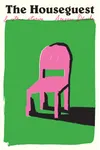Picture a Mexican storyteller who spun tales so eerie they linger like shadows—meet Amparo Dávila! Born in 1928 in Zacatecas, this literary luminary crafted horror and fantasy stories that blend the uncanny with the everyday. Her work, rich with psychological depth, has captivated readers and inspired writers, earning her a revered spot in Mexican literature.
Dávila’s stories aren’t just spooky—they’re a haunting exploration of fear, madness, and the hidden struggles of women. With a style that dances between reality and nightmare, she’s a must-read for anyone who loves a thrilling, thought-provoking tale. Let’s dive into her life and legacy!
The Making of Amparo Dávila
Amparo Dávila was born on February 21, 1928, in Pinos, Zacatecas, a small town that fueled her vivid imagination. As the sole surviving child of her family, she found solace in her father’s library, where books became her escape from a childhood marked by fear. This early brush with dread would later seep into her stories, giving them a raw, relatable edge. In 1954, she moved to Mexico City, working as secretary to the renowned writer Alfonso Reyes, who encouraged her to publish. Her literary journey began with poetry, but it was her shift to short stories that truly set her apart.
Amparo Dávila’s Unforgettable Stories
Dávila’s stories are like stepping into a dream where the familiar turns sinister. Her first major work, Tiempo destrozado (1959), is a collection of tales that weave psychological horror with everyday settings. In stories like “Moses and Gaspar,” characters grapple with mysterious, unsettling forces, leaving readers questioning reality. Música concreta (1964) delves deeper into the surreal, with tales of paranoia and obsession, like a woman haunted by a malevolent toad—or is it her own mind?
Her masterpiece, Árboles petrificados (1977), earned her the prestigious Xavier Villaurrutia Award. This collection, with stories like “El espejo,” showcases her knack for crafting claustrophobic atmospheres where women confront their inner demons. Dávila’s style is precise yet evocative, using clear language to paint vivid, disturbing images. Her focus on female protagonists, often trapped by societal norms, makes her work a powerful critique of mid-20th-century Mexican gender roles.
In 2018, The Houseguest and Other Stories brought her chilling tales to English readers, translated by Matthew Gleeson and Audrey Harris. The title story, about a sinister visitor disrupting a household, is a masterclass in suspense, blending horror with social commentary. Dávila’s ability to blur the line between the real and the fantastic has drawn comparisons to Shirley Jackson and Julio Cortázar.
Why Amparo Dávila Matters
Amparo Dávila’s impact on Mexican literature is profound. As a pioneer of the fantastic, she paved the way for women in a male-dominated literary scene, alongside contemporaries like Rosario Castellanos. Her stories, often centered on women’s repressed identities, resonate with readers seeking narratives that challenge societal norms. In 2015, Mexico honored her with the Medalla Bellas Artes and created the Premio Bellas Artes de Cuento Fantástico Amparo Dávila, cementing her influence on new generations of writers.
Her work continues to inspire authors like Cecilia Eudave and Silvia Moreno-Garcia, who cite her as a trailblazer in horror and fantasy. Dávila’s stories, with their universal themes of fear and identity, remain timeless, inviting readers to confront the monsters within. She passed away on April 18, 2020, but her legacy endures, haunting and enchanting readers worldwide.
- Born: February 21, 1928, Pinos, Zacatecas, Mexico
- Key Works: Tiempo destrozado, Música concreta, Árboles petrificados, The Houseguest and Other Stories
- Awards: Xavier Villaurrutia Award (1977), Medalla Bellas Artes (2015)
Ready to get spooked? Snag The Houseguest and Other Stories and dive into Amparo Dávila’s mesmerizing world of horror and fantasy!

